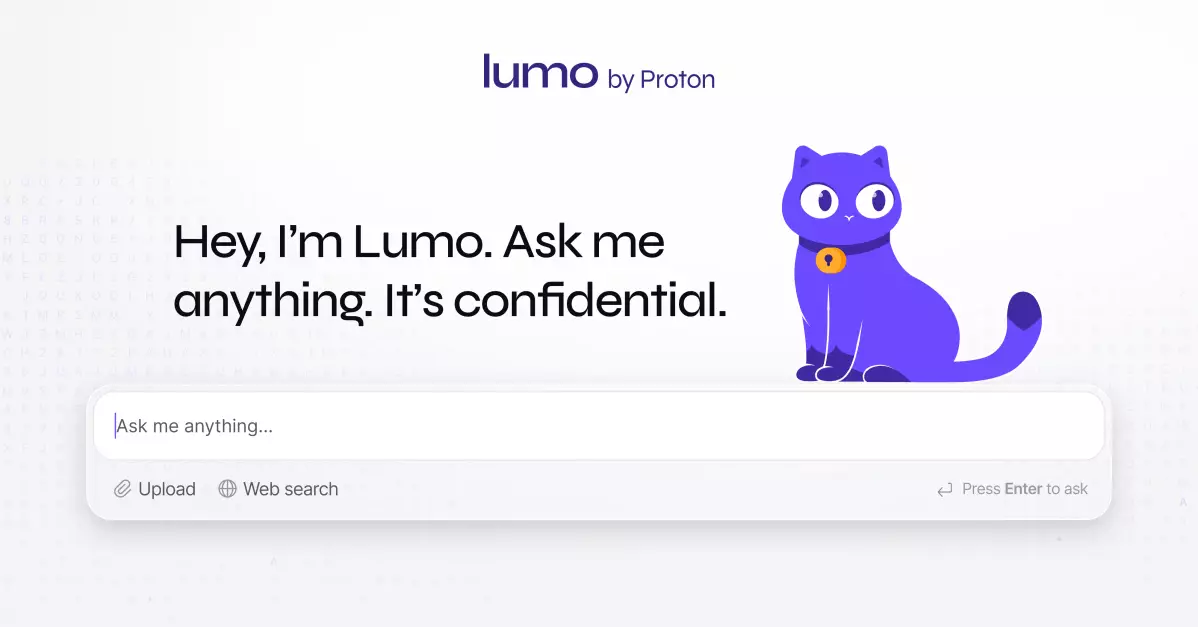In an era where digital privacy often feels like an illusion, Proton’s introduction of Lumo marks a significant shift towards genuinely user-centric AI technology. Unlike the sprawling data-harvesting giants, Proton emphasizes zero-access encryption, a paradigm that grants users sole control over their data. This approach is not merely a technical feature; it is a profound statement about trust and respect for individual privacy. By storing data locally and encrypting it with keys only the users possess, Proton challenges the industry norm: it refuses to commodify user conversations or leverage them for profit. This level of privacy-centric design offers a compelling blueprint for a future where technology serves its users rather than exploiting them.
However, one must scrutinize whether the implementation of zero-access encryption can truly counteract the massive data collection mechanisms employed by larger corporations. While Proton’s pledge to prevent third-party access is admirable, the challenge lies in practical enforcement and user understanding. Many users may be unaware of what “zero-access” truly entails or how it differentiates from standard encryption methods. In a landscape where complex technical safeguards are often opaque, transparency and education become critical. Proton’s strategy hinges on not only deploying advanced encryption but also fostering trust through clarity—a task that is as vital as the technology itself.
Balancing Functionality and Privacy in AI Development
Lumo’s capabilities—summarizing documents, generating code, drafting emails—demonstrate that privacy need not come at the expense of utility. The chatbot integrates multiple open-source models, dynamically selecting the best at answering different types of queries, from programming to general knowledge. This versatility positions Lumo as a formidable alternative to big-tech AI models, which frequently prioritize extensive data collection under the guise of improving services. Proton’s stance is clear: AI can be powerful yet private, and user data should never be a bargaining chip.
Despite these noble ambitions, the implementation confronts inherent challenges. For instance, limiting features such as web search and chat history access for free users can hinder adoption and user satisfaction. Moreover, the reliance on local data storage, while enhancing privacy, could also introduce issues related to device security and management. If a device is compromised or lost, access to encrypted chats might be at risk, raising questions about whether the convenience of AI truly aligns with privacy.
Furthermore, the decision to restrict web search by default and only enable it upon user consent could be perceived as a double-edged sword. While it respects privacy, it also nudges less tech-savvy users toward limited functionality that might diminish Lumo’s practical appeal. It’s essential for Proton not only to prioritize privacy but also to strike a balance that offers seamless, user-friendly experiences that foster adoption and trust.
Industry Impact and the Promise of Ethical AI
Proton’s launch of Lumo signals a potential paradigm shift: can an AI service that champions privacy survive and thrive amidst the dominance of tech giants? It raises broader questions about the future of AI development—will the industry pivot towards transparency, user rights, and ethical practices, or continue prioritizing data monetization?
Andy Yen’s assertion that “big tech uses AI to supercharge sensitive data collection” resonates as a wake-up call. Lumo signifies that AI can be harnessed in service of users’ rights, rather than undermining them. If Proton’s approach gains traction, it could pressure other companies to rethink their strategies and adopt similar privacy-first models. The open-source foundation of Lumo’s models further aligns with this philosophy, promoting transparency and collaborative improvement.
However, for Lumo to catalyze meaningful change, Proton must demonstrate that privacy-preserving AI can scale, adapt, and offer competitive utility. The challenge is not only technical but also cultural: convincing users and industry stakeholders that safeguarding privacy is a competitive advantage, not just a moral stance. If successful, Lumo could set a new standard—an AI service that respects its users’ autonomy, pushing the industry toward a future where privacy is an integral feature, not an afterthought.

